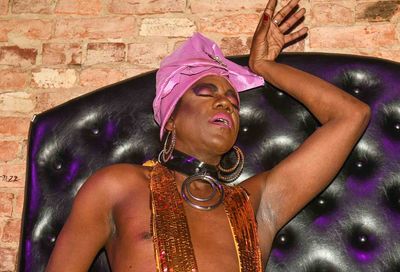A Brutal Loss: Election 2024
Buoyed by economic and cultural angst, Donald Trump defeated Vice President Kamala Harris to become the U.S. President once again.

It was the torrential “red wave” that never surfaced in 2022.
It was the stinging rebuke of a toxic Democratic “brand.”
It was a hard shift to the political right, fueled by working-class people angry about inflation, higher prices, and soaring housing costs, people anxious about a lax approach to criminal justice and unchecked immigration.
It was the rejection of global and government elites, the pundit class, and the mainstream media that was seen as their cheerleaders and foreign entanglements abroad.
It was the full repudiation of reasonable, liberal culture, from safe spaces to identity politics.
It was, in essence, the “Florida-fication” of the United States.
When history is written, that is how the 2024 presidential election will most likely be remembered.
Donald Trump, running on a platform of personal grievances and memories of a robust economy in his first three years in the White House, didn’t just win the Electoral College, clinching the presidency — he became the first Republican candidate to win the popular vote for the first time in 20 years and the first convicted felon to become president-elect of the United States.
His fellow Republicans appear to have won control of both chambers of Congress, picking up at least four Senate seats and maintaining what appears to be a narrow hold on the House of Representatives.
While there were a few minor, legitimate quibbles that Wednesday-morning quarterbacks could take with Kamala Harris’s messaging and strategy, the Vice President essentially ran a strong, disciplined campaign in the brief 107 days between Biden’s decision to drop out of the presidential race and Election Day.
Harris managed to partially overcome President Joe Biden’s sagging approval ratings and personal unpopularity by reviving Democratic hopes and surging to pull even with or ahead of Trump in most public polls conducted during late July and August.
But her inability to completely sever her record from Biden’s, as well as her failure to explain what she would do differently, tethered her to the unpopular Democratic incumbent.
Of course, it cannot be overlooked that many voters were likely motivated by the Trump campaign’s doom-and-gloom picture of America as a dystopian nation plagued by rising food and gas prices, rampant crime, unchecked mass immigration, and a seeming lack of border security.
As with most elections, voters prioritized their own well-being and struggles to make ends meet over lofty ideals and Democratic-led appeals to “preserving democracy.”
According to Jeff Stein of The Washington Post, more affluent voters and those with higher levels of education rallied to Harris’s side. At the same time, those without college degrees and from lower income brackets realigned to Trump.
In 2020, Trump won voters with per-year incomes of over $100,000 by a 12-point margin while losing people who make between $50,000 and $100,000 a year by 15 points and voters making under $50,000 a year by 10 points. By comparison, he lost affluent voters by 9 points but narrowly won among those making less than $100,000 a year.
Trump and Republican-aligned allies also ran $215 million worth of ads attacking Democrats over transgender people — repeatedly and loudly punching a bright red PANIC! button over the issues of trans participation in sports and gender-affirming care for youth.
A majority of Americans are hostile to the idea of transgender identity. According to the Pew Research Center, 6 in 10 Americans believe a person cannot change their gender from their assigned sex at birth (even though an equally large majority also don’t believe in discriminating against transgender individuals in employment and housing).
So it is unsurprising that anti-transgender sentiment might have motivated some voters to back Trump and Republicans. According to AP VoteCast, about half of all voters — including 8 in 10 Trump voters — said that support for transgender rights in government and society has gone too far — though details of what specific policies or positions were considered “too far” were nonexistent.
At least some voters were surely motivated to choose Trump simply because of Harris’s gender and race, pointing to an underlying misogyny and racism already all-too-prevalent in American society.
But the much larger group of Trump’s supporters — including many who voted for Biden four years ago — appeared to be galvanized by the prospect of expressing their dislike of the current administration’s policies.
CNN exit polls showed 31% of voters felt the economy was the top issue, with 51% of voters telling exit pollster Edison Research that they trusted Trump over Harris on how to handle the economy.
As Melissa Deckman, a political scientist and chief executive of Public Religion Research Institute, told Reuters, most Americans felt that they were struggling economically, and yet, “[t]he Harris campaign did not necessarily do a good job of explaining how her policies would help the middle class, or at least that message wasn’t really resonating with a lot of voters.”
In the end, Trump was able to knit together a broad coalition of support, making gains among younger males, Latinos, and Black men, as well as enjoying his usual support from white voters. He rallied them around the issue of better economic prospects and lower prices while also heavily trumpeting right-wing MAGA “culture war” issues, casting the Democratic Party “elites” as condescending scolds who neither understand nor care about issues affecting ordinary Americans.
In essence, he became their middle finger to the political status quo and establishment figures by whom they feel misled and abandoned.
For LGBTQ advocates, who see themselves as one of the groups dubbed “the enemy within” by the President-Elect — and who have seen more than two dozen states pass laws restricting LGBTQ visibility or freedoms — the loss is extraordinarily painful.
Some have voiced concerns that the U.S. Supreme Court, now guaranteed to have a near-permanent Republican majority for decades, will issue rulings further emboldening state and congressional leaders to impose additional restrictions.
But the movement’s leaders urged followers to remain calm, patient, and clear-headed while rededicating themselves to the fight for equality.
“We know our community is feeling scared, angry, and worried about what’s next for them and their families,” Kelley Robinson, the president of the Human Rights Campaign, said in a statement.
“[T]here’s no question that we will face more challenges in the years to come, as part of our fight for full LGBTQ+ equality. But our ancestors taught us that resilience is our superpower. Make no mistake — we are not backing down. And we are going to continue to show up for each other and for the march toward progress — no matter what.”
Support Metro Weekly’s Journalism
These are challenging times for news organizations. And yet it’s crucial we stay active and provide vital resources and information to both our local readers and the world. So won’t you please take a moment and consider supporting Metro Weekly with a membership? For as little as $5 a month, you can help ensure Metro Weekly magazine and MetroWeekly.com remain free, viable resources as we provide the best, most diverse, culturally-resonant LGBTQ coverage in both the D.C. region and around the world. Memberships come with exclusive perks and discounts, your own personal digital delivery of each week’s magazine (and an archive), access to our Member's Lounge when it launches this fall, and exclusive members-only items like Metro Weekly Membership Mugs and Tote Bags! Check out all our membership levels here and please join us today!


























You must be logged in to post a comment.